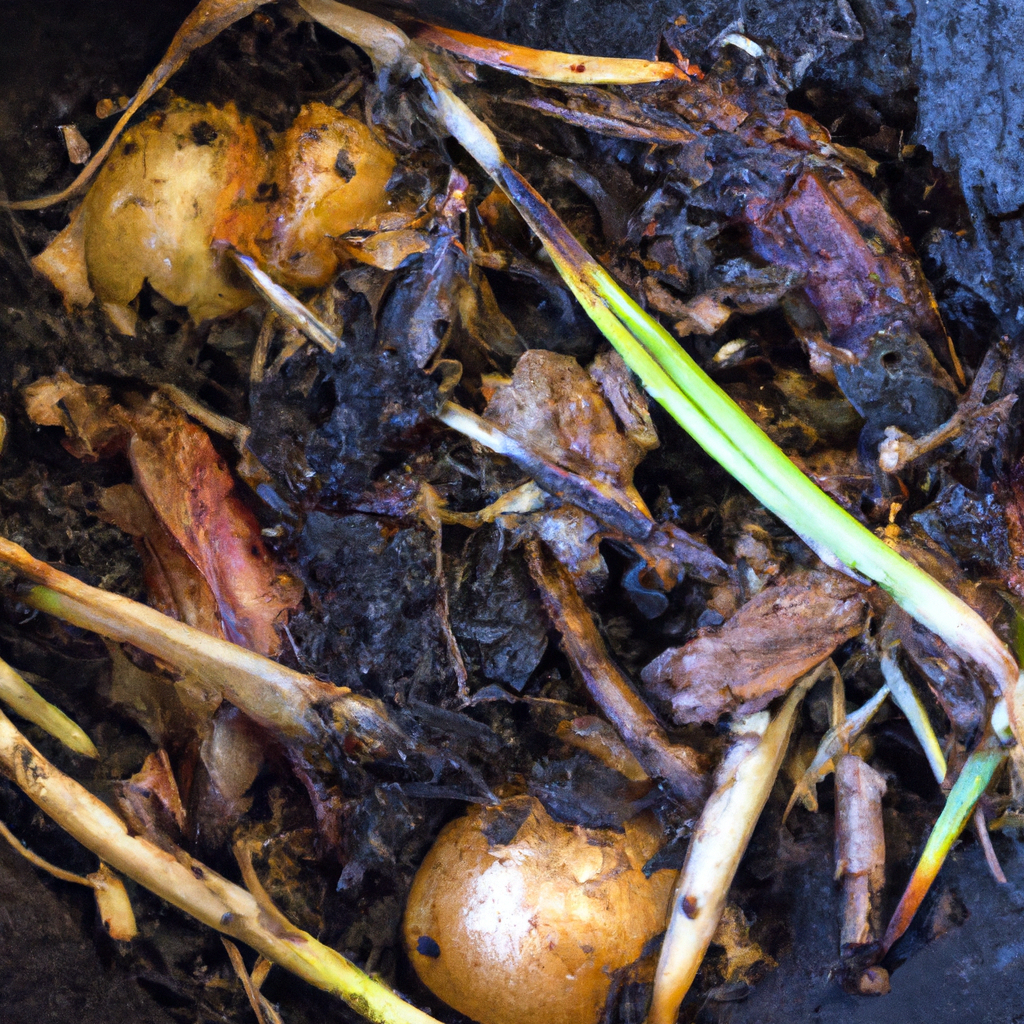Have you ever wondered what would happen if you left your compost untouched for too long? Well, let’s unravel the mystery! As the organic matter decomposes in your compost pile, it undergoes a fascinating transformation that is essential for healthy nutrient-rich soil. However, if you neglect your compost for an extended period, you may encounter some unpleasant consequences. Let’s explore what might occur if you leave the compost too long and discover why regular maintenance is crucial for successful composting.
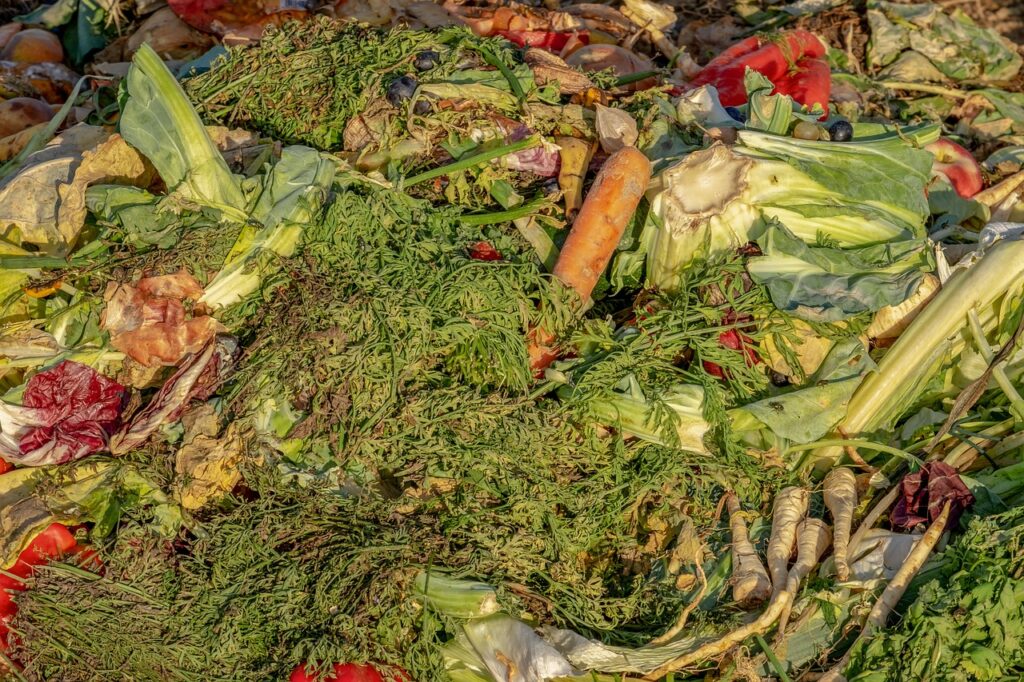
Check Out Our Recommended Composting Products on Amazon Right Here!
Microbial Activity Decreases
Loss of heat-generating microorganisms
When you leave the compost pile for too long, one of the first things that happens is a decrease in microbial activity. This means that the microorganisms responsible for breaking down the organic materials in the compost pile are no longer as active as they once were. Without these heat-generating microorganisms, the pile loses its ability to reach the optimal temperature for decomposition. As a result, the composting process slows down significantly.
Decreased decomposition rate
The decrease in microbial activity directly leads to a decreased decomposition rate in the compost pile. With fewer active microorganisms, the organic materials in the pile take longer to break down. This slower decomposition rate means that the compost will not reach the desired final product as quickly as it would under optimal conditions. Instead of producing nutrient-rich humus in a reasonable amount of time, you may find yourself waiting months or even years for the compost to fully mature.
Increased risk of anaerobic conditions
Another consequence of leaving the compost pile for too long is the increased risk of anaerobic conditions. Anaerobic decomposition occurs in the absence of oxygen and is characterized by a putrid smell and the production of ammonia. When the decomposition process slows down in the compost pile, it creates an environment that becomes less oxygen-rich. This change in oxygen levels makes it easier for anaerobic microorganisms to thrive, leading to the unpleasant odors associated with decomposition.
If compost is left unattended for an extended period, several potential issues may arise.
Nutrient Content Diminishes
Leaching of essential nutrients
Leaching is a process that occurs when water moves through the compost pile, carrying away essential nutrients. When the compost pile is left unattended for too long, this leaching becomes more pronounced. The longer the pile sits unused, the greater the loss of vital nutrients that are essential for plant growth and development. This means that the compost you eventually use may not provide the same level of nutrients and benefits for your plants as it would if it had been harvested at the optimal time.
Loss of nitrogen
Nitrogen is a crucial nutrient for healthy plant growth, and it plays a vital role in the composting process. However, when you leave the compost pile for an extended period, there is a loss of nitrogen. This loss can occur through various mechanisms, such as volatilization or leaching. Without sufficient nitrogen, the composting process becomes less efficient, and the resulting compost may lack the desired nitrogen content needed for plant nourishment.
Decreased availability of organic matter
Organic matter is a key component of compost, providing essential nutrients to plants and improving soil structure. Unfortunately, if you leave the compost pile unattended for too long, the availability of organic matter diminishes. As the pile sits unused, microorganisms and other organisms break down the organic matter, reducing its quantity and quality. This reduction in organic matter can limit the effectiveness of the compost once it is finally used in the garden, resulting in less productive and healthy plants.
Check Out Our Recommended Composting Products on Amazon Right Here!
Unpleasant Odor Develops
Putrid smell of decomposition
One of the most noticeable consequences of leaving the compost pile for too long is the development of a putrid smell. As the decomposition process slows down, anaerobic microorganisms start to dominate, emitting odors that are far from pleasant. These odors can permeate the air around the compost pile and can be particularly strong if the pile is not properly aerated. The presence of a putrid smell is not only unpleasant for you but can also be a nuisance for your neighbors.
Ammonia odor due to anaerobic breakdown
In addition to the putrid smell, leaving the compost pile unattended can result in an ammonia odor due to anaerobic breakdown. Anaerobic microorganisms produce ammonia as a byproduct during the decomposition of organic materials. When the compost pile lacks oxygen, the anaerobic breakdown becomes more prevalent, leading to the distinct smell of ammonia. Not only is this odor unpleasant, but it also indicates that the compost pile is not functioning optimally.
Offensive odors from rotting materials
As organic materials in the compost pile are left to deteriorate for an extended period, offensive odors from rotting materials can develop. These odors can be described as musty, rancid, or soured, depending on the specific components in the compost pile. The longer the compost is left untouched, the stronger and more disagreeable these odors become. The offensive odors not only make being near the compost pile unpleasant but also serve as an indication of the decomposition process going awry.
Pests and Diseases Thrive
Increased presence of insects
Leaving the compost pile unattended for too long can attract an increased presence of insects. Insects are naturally drawn to decaying organic matter, and when the compost is left untouched, it becomes an ideal breeding ground for them. These insects can range from flies and beetles to maggots and ants, and they can disrupt the composting process. Additionally, if pests such as fruit flies or cockroaches infest the compost, they may later spread to other areas of the garden, causing further problems.
Propagation of fungal diseases
Fungi play a crucial role in the decomposition process of organic materials in the compost pile. However, when the compost is left for too long, certain fungal diseases can thrive and propagate. Fungal diseases, such as molds and mildews, can spread rapidly among the decaying materials in the pile. These diseases can inhibit the proper breakdown of organic matter and contribute to the unpleasant odors that develop. Moreover, if these fungal diseases are introduced into the garden, they can cause damage to the plants and negatively affect their overall health.
Attractiveness to rodents and scavengers
An unattended compost pile can become an attractive site for rodents and scavengers. Rats, mice, raccoons, and other wildlife are drawn to the abundance of decaying organic matter, which serves as a readily available food source. These animals not only disturb the compost pile but can also cause damage to nearby structures or spread diseases. Additionally, scavengers like birds or stray animals may scatter the compost materials, making the composting process less effective and potentially creating a mess in your garden.
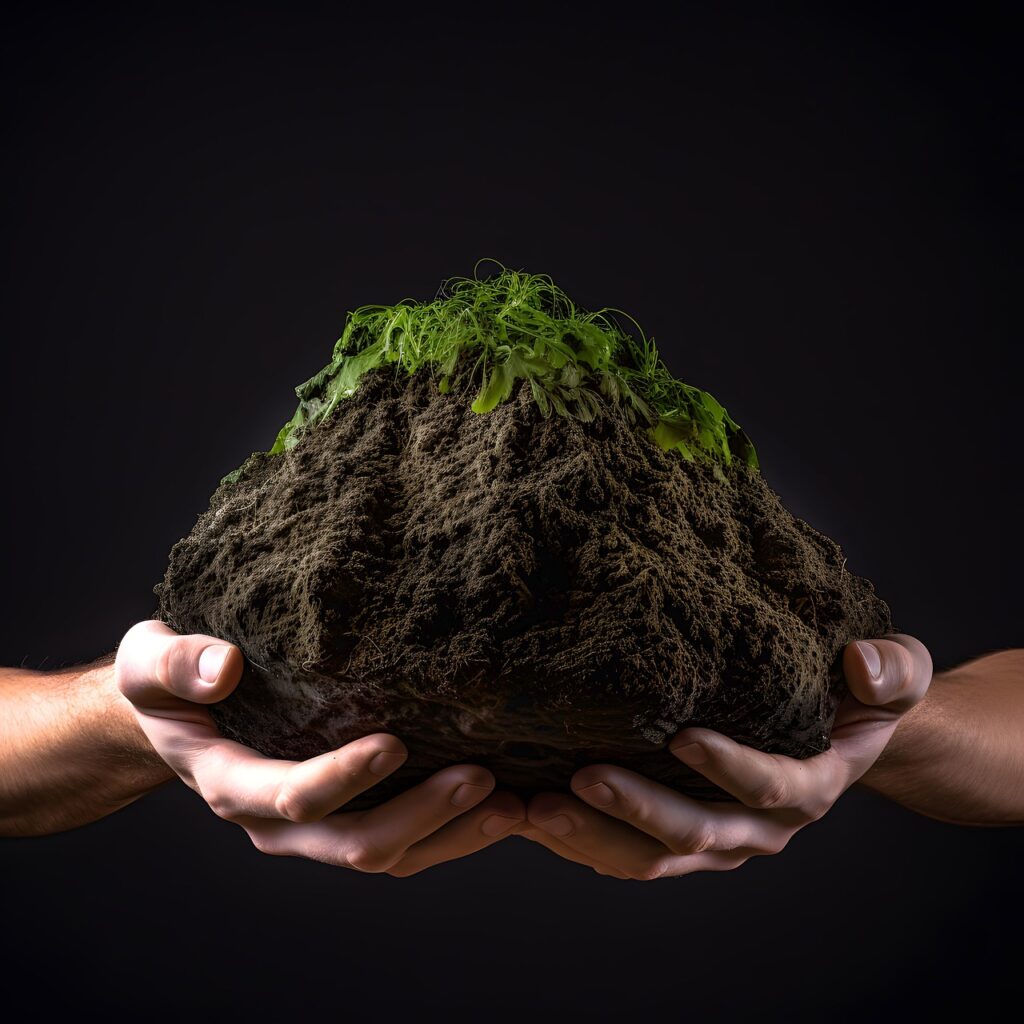
Weed Seeds Survive
Inadequate temperature for seed suppression
Composting relies on maintaining optimal temperatures to suppress the survival and growth of weed seeds. However, when the compost pile is left for too long, the temperature can drop below the level necessary for effective seed suppression. Without adequate heat, weed seeds can survive in the compost, ready to germinate once the compost is applied in the garden. This can lead to an infestation of weed growth, making it more challenging to maintain a weed-free garden space.
Survival and spread of weed seeds
When composting is not managed diligently, weed seeds can survive and even spread within the pile. Weed seeds can be quite resilient and can withstand harsh conditions, including the composting process. If the compost pile is not properly turned or maintained, weed seeds can escape decomposition and remain viable. As a result, when the compost is eventually used in the garden, these weed seeds can germinate and quickly multiply, creating a significant weed problem.
Infestation of weed growth in the garden
Perhaps the most frustrating consequence of leaving the compost pile unattended is the potential infestation of weed growth in your garden. When immature compost, containing viable weed seeds, is applied to the soil, it provides a perfect environment for the weeds to thrive. Weeds can outcompete your desired plants for resources such as water, sunlight, and nutrients, leading to reduced plant growth and an unsightly garden. The infestation of weed growth can be time-consuming and challenging to rectify once established.
Increased Moisture Levels
Loss of moisture control
Proper moisture control is vital for successful composting, but leaving the compost pile unattended can lead to a loss of moisture control. Without regular monitoring and adjustments, the compost pile can become too dry or too wet. If the compost becomes too dry, decomposition slows down, and the microbial activity decreases. Conversely, if the compost becomes too wet, it can lead to waterlogging and an increase in anaerobic conditions. Both scenarios can hinder the composting process and negatively impact the quality of the final compost.
Risk of waterlogging
When compost pile sits for an extended period without regular maintenance, there is an increased risk of waterlogging. Waterlogging occurs when excess water accumulates in the compost pile, preventing proper drainage. This excess moisture can suffocate the beneficial microorganisms responsible for decomposition and create an environment conducive to the growth of anaerobic organisms. Waterlogging not only undermines the composting process but also negatively affects the quality of the compost, resulting in a subpar product for your plants.
Promotes growth of water-loving fungi
The prolonged neglect of a compost pile creates an environment that promotes the growth of water-loving fungi. Fungi, such as molds and yeasts, thrive in damp conditions. When a compost pile becomes excessively moist due to a lack of maintenance, it creates an ideal habitat for these fungi to flourish. While certain fungi can aid in the decomposition process, an overabundance of water-loving fungi can hinder the proper breakdown of organic matter. Moreover, some of these fungi may be harmful to plants or cause health issues if exposed to humans or animals.
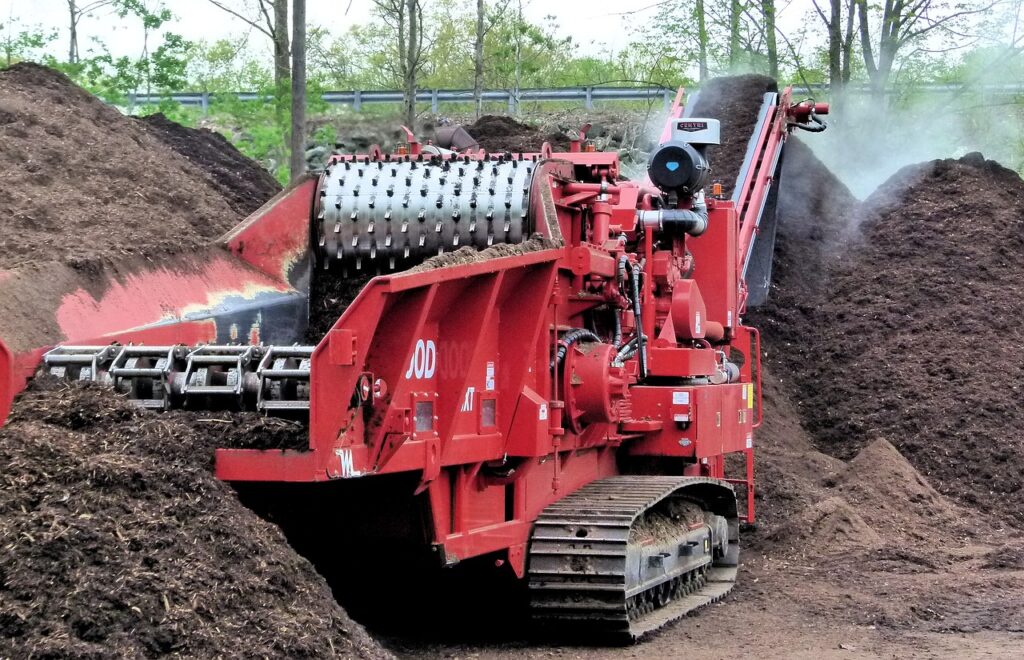
Beneficial Organisms Decline
Reduced population of beneficial bacteria
Beneficial bacteria are essential for efficient decomposition and nutrient cycling in the compost pile. However, when the compost pile is left unattended, the population of beneficial bacteria declines. The lack of regular turning or maintenance allows other microorganisms, such as harmful bacteria or dominant fungi, to take over the composting process. This shift in microorganism composition can disrupt the delicate balance required for effective decomposition, resulting in slower breakdown rates and nutrient loss.
Decreased earthworm activity
Earthworms are nature’s composting machines, breaking down organic materials and enhancing the soil structure. However, when a compost pile sits unused for too long, earthworm activity decreases. Earthworms require a consistent supply of organic matter to sustain their populations, and without regular additions or turning of the compost, their numbers decline. The decrease in earthworm activity not only slows down the decomposition process but also affects the quality of the compost. Earthworms contribute to nutrient cycling and the creation of nutrient-rich humus, which is vital for plant growth.
Detrimental effect on soil structure
Leaving the compost pile unattended can also have a detrimental effect on the structure of the soil. Compost, when applied to the soil, helps improve its structure, enhancing water retention, drainage, and nutrient availability. However, when compost is not properly managed, it loses its ability to contribute to soil structure. The lack of regular turning and aeration in the compost pile can result in compacted, dense compost that lacks the desired crumbly texture. Utilizing such compost in the garden can negatively impact soil health and impede root growth.
Slow Compost Maturation
Protracted breakdown of organic materials
One of the obvious outcomes of leaving the compost pile unattended is the protracted breakdown of organic materials. With the absence of proper maintenance, the decomposition process slows down considerably. The lack of regular turning and adjustments results in inefficient decomposition, prolonging the breakdown of organic materials. This delay in decomposition not only inhibits the production of nutrient-rich compost but also takes up valuable space in your garden or composting area.
Incomplete decomposition of larger pieces
Large pieces of organic matter, such as branches or twigs, take longer to break down compared to smaller, more readily decomposable materials. When the compost pile is left for too long, these larger pieces may not have fully decomposed by the time you plan to use the compost. Incomplete decomposition of larger pieces can lead to uneven texture and hinder the ability of the compost to provide consistent nutrients to your plants. It’s important to manage the compost pile regularly to ensure all organic materials break down fully.
Longer time required for nutrient-rich humus
The extended period of neglecting the compost pile inevitably translates to a longer time required for the formation of nutrient-rich humus. Humus, the end product of composting, is a vital component of healthy soil. It provides a rich array of nutrients, improves soil structure, and enhances soil fertility. However, when the compost piles are left unattended, the maturation process slows down significantly. Consequently, it may take years for the compost to transform into high-quality humus that is ready to be used in the garden effectively.
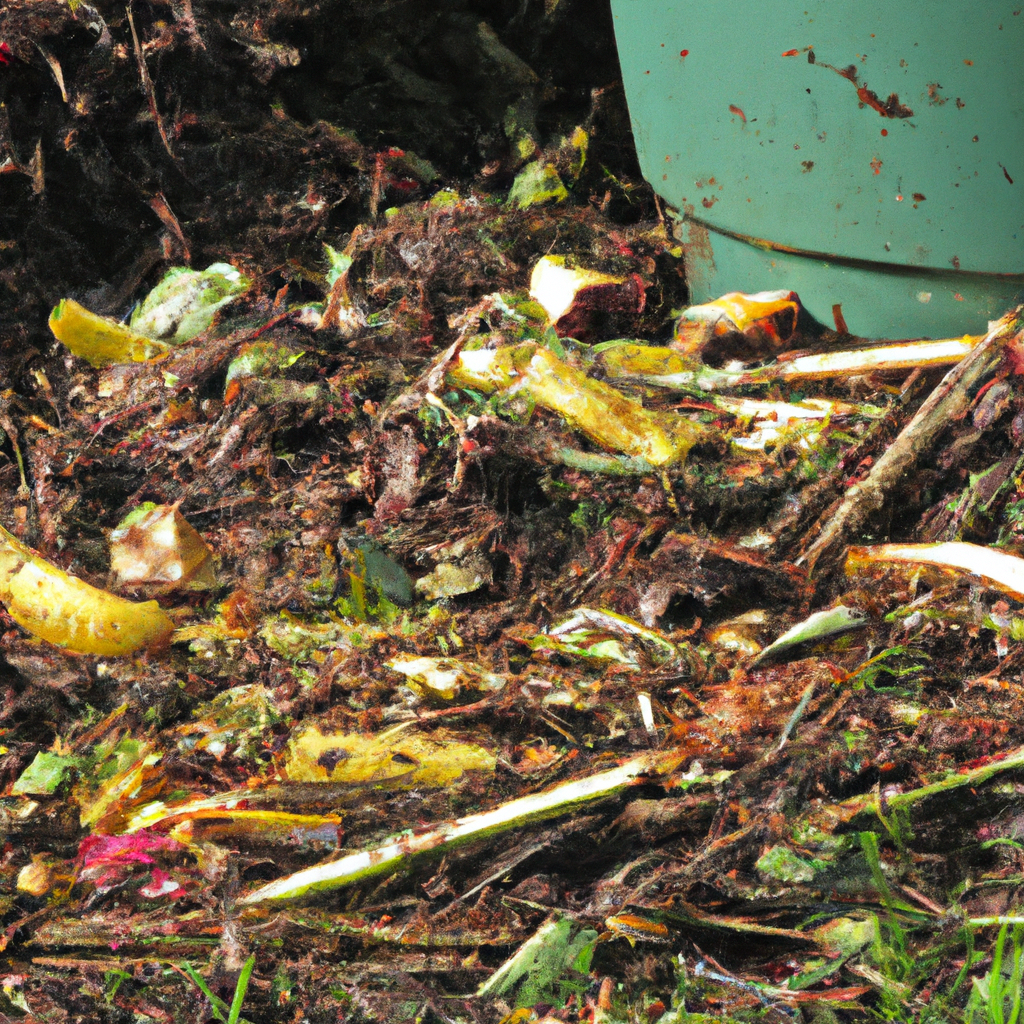
Risk of Contaminants
Introduction of harmful substances
One significant risk associated with leaving the compost pile unattended is the introduction of harmful substances. When the compost is not actively managed, there is a chance that items containing harmful substances, such as plastics or chemicals, can accidentally find their way into the pile. These contaminants can leach into the compost during decomposition and, when used in the garden, can be detrimental to plant health and potentially harmful to the environment. It is crucial to regularly monitor and maintain the compost pile to ensure the exclusion of any harmful substances.
Contamination from pesticides or chemicals
If the compost pile is located in close proximity to areas where pesticides or chemicals are used, there is a risk of contamination. Pesticides and chemicals can easily drift or be washed into the compost pile, subsequently contaminating the compost. When this contaminated compost is then applied to the garden, it can negatively impact plant health and contribute to the pollution of soil and water sources. To mitigate this risk, it is important to be mindful of the location of the compost pile and the activities occurring nearby.
Toxicity in the resulting compost
Leaving the compost pile unattended increases the likelihood of producing compost that contains toxic substances. When harmful items or contaminated materials end up in the compost and undergo decomposition, there is a risk of generating compost that is toxic to plants, animals, or humans. The presence of toxic compounds in the compost can lead to decreased plant growth, plant diseases, or even health issues if ingested or handled improperly. Monitoring and maintaining the compost pile regularly can help prevent the production of toxic compost.
Missed Gardening Opportunities
Delayed availability of compost for plants
One of the most significant missed opportunities when leaving the compost pile unattended is the delayed availability of compost for plants. Compost, when properly matured, enriches the soil with essential nutrients and improves its structure. However, without regular management, the compost pile takes significantly longer to produce the desired product. This delay in compost maturation means that your plants must wait longer to receive the benefits of nutrient-rich compost, potentially impacting their growth and overall health.
Lost chance to utilize compost nutrients
With a neglected compost pile, you lose the chance to utilize the valuable nutrients stored in the compost. The purpose of composting is to enhance soil fertility by recycling organic materials and returning their nutrients back to the garden. When the compost pile is left unattended, those nutrients are not being incorporated into the soil to nourish your plants. It is a missed opportunity to efficiently utilize the nutrients in the compost and maximize their benefits in promoting healthy plant growth and plant productivity.
Postponed improvement of soil fertility
Lastly, leaving the compost pile unattended postpones the improvement of soil fertility in your garden. Compost is a powerful tool for enhancing soil fertility, increasing nutrient availability, and promoting beneficial soil microorganisms. When you neglect the compost pile, you delay the process of enriching the soil with these vital elements. Properly managed and matured compost can dramatically improve soil quality and create an optimal environment for plant growth. By neglecting the compost pile, you miss out on the opportunity to actively improve the fertility of your garden soil and maximize its potential.
Check Out Our Recommended Composting Products on Amazon Right Here!

